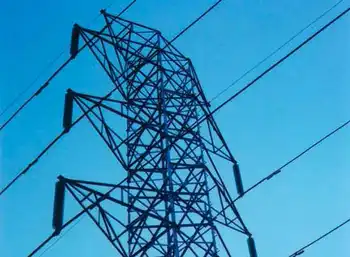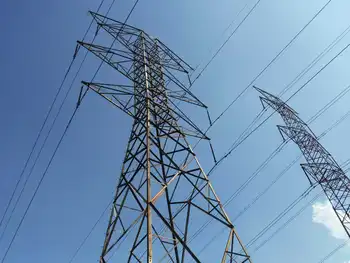Power bills down, but not for long
Utilities in major markets like New York, Chicago and Texas lowered rates as the recession cut industrial and residential consumption and wholesale power costs during the first half of 2009 fell to the lowest levels in seven years.
An expected economic recovery in 2010 and federal green energy regulations could push costs up again quickly, analysts and power companies said.
"No one can expect demand and fuel costs to remain this low forever. Once the economy recovers, demand will start to rise and utilities will likely have to deal with new government mandates," said Jim Owen of the Edison Electric Institute (EEI), an association of investor-owned electric companies.
New York power company Consolidated Edison Inc cut August power bills for residential customers by more than 30 percent from the same month last year as the company passed along savings from a slump in the wholesale market.
In Chicago, Commonwealth Edison, a unit of Exelon Corp, was also on track to cut summer bills by more than 9 percent due to the lower wholesale costs.
Lower bills are largely the result of a nosedive in the cost of natural gas, used to produce a fifth of the country's power. Prices for other fuels like coal also fell due to the economically driven decline in demand.
But fuel-savings have been slower to reach some parts of the country due to regulatory delays, and rising costs for infrastructure and transmission that could offset the lower fuel costs.
The U.S. Energy Information Administration has predicted that U.S. power use should grow by 0.8 percent next year, ending two consecutive years of decline.
U.S. utilities also are investing billions of dollars to prepare for tough new federal clean energy regulations. The rules are expected to include proposed curbs on greenhouse gas emissions under debate in Congress.
"We have not even begun to see the impact of the proposed new climate change, renewable and energy efficiency programs," EEI's Owen said.
Over the next few years, U.S. utilities plan to spend some $85 billion a year to meet growing demand, replace aging equipment and prepare for new environmental, renewable and efficiency mandates, EEI said.
Some of those costs are already padding bills. In California, for example, retail prices have crept higher this year as the state's giant utilities — Edison International's Southern California Edison (SCE) and PG&E Corp's Pacific Gas & Electric — invest tens of billions of dollars to meet demand and green energy programs.
"Retail power supply costs are made up of a blend of long- and short-term purchases usually bought over a few years," said Aneesh Prabhu, an energy analyst with credit rating agency Standard & Poor's.
The EIA predicted U.S. average retail power bills will rise by 4.2 percent in 2009 and 2.6 percent in 2010. The slower rate of increase in 2010 was attributed to this year's slump in wholesale costs.
Related News

Tories 'taking the heart out of Manitoba Hydro' by promoting subsidiaries, scrapping low-cost pledges: NDP
WINNIPEG - The board of Manitoba Hydro is being reminded it can divvy up some of the utility's work to subsidiaries — which the NDP is decrying as a step toward privatization.
A sentence seemingly granting the board permission to create subsidiaries was included in the board's new terms of reference, which the NDP raised during question period Wednesday.
The document also eliminated references asking Manitoba Hydro to keep electricity rates low and supply power in an environmentally-friendly fashion.
NDP raises spectre of Manitoba Hydro's privatization with new CEO
"They're essentially taking the heart out of Manitoba Hydro," NDP leader Wab Kinew said.
Cheap,…




